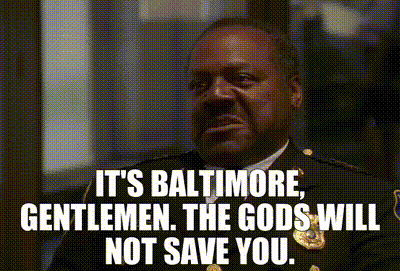“How can anyone govern a nation that has two hundred and forty-six different kinds of cheese?” – Charles de Gaulle (attributed)
Ah, France! [Insert lazy paragraph describing France in in terms of classic cliches including food, wine, cheese, sex, cigarettes and surrender.]

Yes, you’ll do nicely, Cliched French Guy Clip Art
In addition to those classic French attributes, another time-honored French tradition is “widespread rioting,” which they’ve been celebrating over the last few weeks. What they’re protesting is French President Emmanuel Macron’s decision to force through an unpopular bill to raise the retirement age from 62 to 64.
French President Emmanuel Macron ordered his prime minister to wield a special constitutional power Thursday that skirts parliament to force through a highly unpopular bill raising the retirement age from 62 to 64 without a vote.
His calculated risk set off a clamor among lawmakers, who began singing the national anthem even before Prime Minister Elisabeth Borne arrived in the lower chamber. She spoke forcefully over their shouts, acknowledging that Macron’s unilateral move will trigger quick motions of no-confidence in his government.
The fury of opposition lawmakers echoed the anger of citizens and workers’ unions. Thousands gathered at the Place de la Concorde facing the National Assembly, lighting a bonfire. As night fell, police charged the demonstrators in waves to clear the elegant Place. Small groups of those chased away moved through nearby streets in the chic neighborhood setting street fires. At least 120 were detained, police said.
Similar scenes repeated themselves in numerous other cities, from Rennes and Nantes in the east to Lyon and the southern port city of Marseille, where shop windows and bank fronts were smashed, according to French media. Radical leftist groups were blamed for at least some of the destruction.
The unions that have organized strikes and marches since January, leaving Paris reeking in piles of garbage, announced new rallies and protest marches in the days ahead. “This retirement reform is brutal, unjust, unjustified for the world of workers,” they declared.
Macron has made the proposed pension changes the key priority of his second term, arguing that reform is needed to keep the pension system from diving into deficit as France, like many richer nations, faces lower birth rates and longer life expectancy.
Macron decided to invoke the special power during a Cabinet meeting at the Elysee presidential palace, just a few minutes before the scheduled vote in France’s lower house of parliament, because he had no guarantee of a majority.
Some background on the maneuver.
French President Emmanuel Macron chose on Thursday to shun parliament and impose his unpopular pension reforms via a special constitutional power, the so-called “Article 49.3.”
The procedure has been regularly used in the past by different governments. But this time it’s drawing a lot of attention and prompting much criticism because of the massive public opposition to the increase in retirement ages.
Here’s a look at how and why the special power is used.
WHAT’S ARTICLE 49.3?
Article 49, paragraph 3 of the French Constitution provides that the government can pass a bill without a vote at the National Assembly, the lower house of parliament, after a deliberation at a Cabinet meeting.
In response, lawmakers can file a no-confidence motion within 24 hours. If the motion gets approval from more than half the seats, the text is rejected and the government must resign.
If not, the bill is considered adopted and passes into law. Since the Constitution was established in 1958, only one no-confidence motion was successful, in 1962.
Charles de Gaulle (him again) rammed through the Constitution of the Fifth Republic because he wanted a stable central government and, compared to some other European states (I’m looking at you, Italy), it’s largely achieved those goals.
The thing is, Macron is probably right in that the French welfare state needs an older retirement age for the entire system to stay solvent (at least for a while longer). But the way his proposal was passed also emblematic of the deficit of democracy in the EU generally and France specifically. That old saw about democracies only lasting until people figuring out they can vote themselves largess from the public treasury is largely right, and in this, as in so many, many things, Eurocratic elites have decided the peasants simply can’t be allowed to derail the plans of their illustrious betters.
As of this writing, Macron just survived a no confidence vote over the issue. So France may well have bought itself a little more time before inevitable national bankruptcy. But every maneuver like increases French anger over the obvious democracy gap, and, as the Grand Tour lads have noted, the French can be exceptionally bloody minded over expressing their disapproval of laws they hate.
